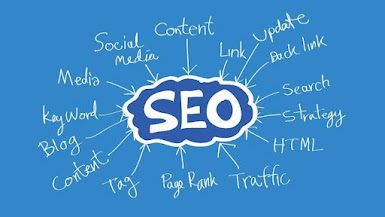SEO is the short form of “Search engine optimization”. It is a technique used by website owners and bloggers to improve their ranking in SERP i.e. search engine results page.
What is SEO?
SEO is an acronym for “search engine optimization”. It is a technique that can be used on a website to improve site visibility amongst search engines. It can result in increased web traffic and higher conversion rates when done correctly.
There are many different factors that contribute to good SEO, including page titles, keywords, and backlinks. However, perhaps the most important element is quality content. Websites with well-written, informative content are more likely to rank higher in search engine results pages (SERPs).
While SEO is a complex and ever-changing field, the basics are relatively easy to understand. And, once you see the benefits of improved SEO, you’ll be eager to put some time and effort into optimizing your own site!
What are the benefits of SEO?
SEO is an acronym for “search engine optimization” or “search engine optimizer.” Deciding to hire an SEO is a big decision that can potentially improve your site and save time, but you can also risk damage to your site and reputation. Make sure to research the potential advantages as well as the damage that an irresponsible SEO can do to your site. Many SEOs and other agencies and consultants provide helpful services for website owners, including:
Review of your site content or structure
Technical advice on website development: for example, hosting, redirects, error pages, use of JavaScript
Content development
Management of online business development campaigns
Keyword research
SEO training
Expertise in specific markets and geographies
How to improve your SEO
SEO, or search engine optimization, is the process of improving the visibility and ranking of your website in search engine results pages (SERPs). By optimizing your site for search engines, you can increase your chances of appearing in the top results for relevant keywords, which can lead to more traffic and conversions.
There are a number of ways to improve your SEO, including on-page optimization (such as optimizing your title tags and meta descriptions), off-page SEO (such as building backlinks), and technical SEO (such as improving your website’s speed and mobile-friendliness).
While some factors are out of your control (such as the quality of your content), there are plenty of things you can do to improve your SEO and boost your chances of ranking high in search results. If you’re looking to get started with SEO, this guide will teach you everything you need to know.
The different types of SEO
SEO can be divided into several categories:
On-page SEO: This refers to all the techniques that are used on your website to improve your search engine ranking. This includes things like optimizing your titles and meta descriptions, as well as making sure your website is well-structured and easy to navigate.
Off-page SEO: This refers to all the techniques that are used outside of your website to improve your search engine ranking. This includes things like building links and creating social media profiles.
Local SEO: This is a specialized form of SEO that is designed to help businesses rank higher in search results for local searches. This includes things like optimizing your Google My Business listing and making sure your NAP (Name, Address, Phone number) information is consistent across the web.
Ecommerce SEO: This is a specialized form of SEO that is designed to help online stores rank higher in search results. This includes things like optimizing product pages and category pages, as well as making sure your checkout process is fast and easy to use.
SEO can be a very effective way to improve your website’s visibility and traffic. However, it’s important to remember that there are no guarantees when
Conclusion
SEO is the process of optimizing a website to rank higher in search engine results. The main benefits of SEO are increased traffic and visibility for your site. However, SEO also has a number of other benefits, including improved user experience, brand awareness, and increased conversion rates. If you're not already incorporating SEO into your marketing strategy, now is the time to start.








0 Comments